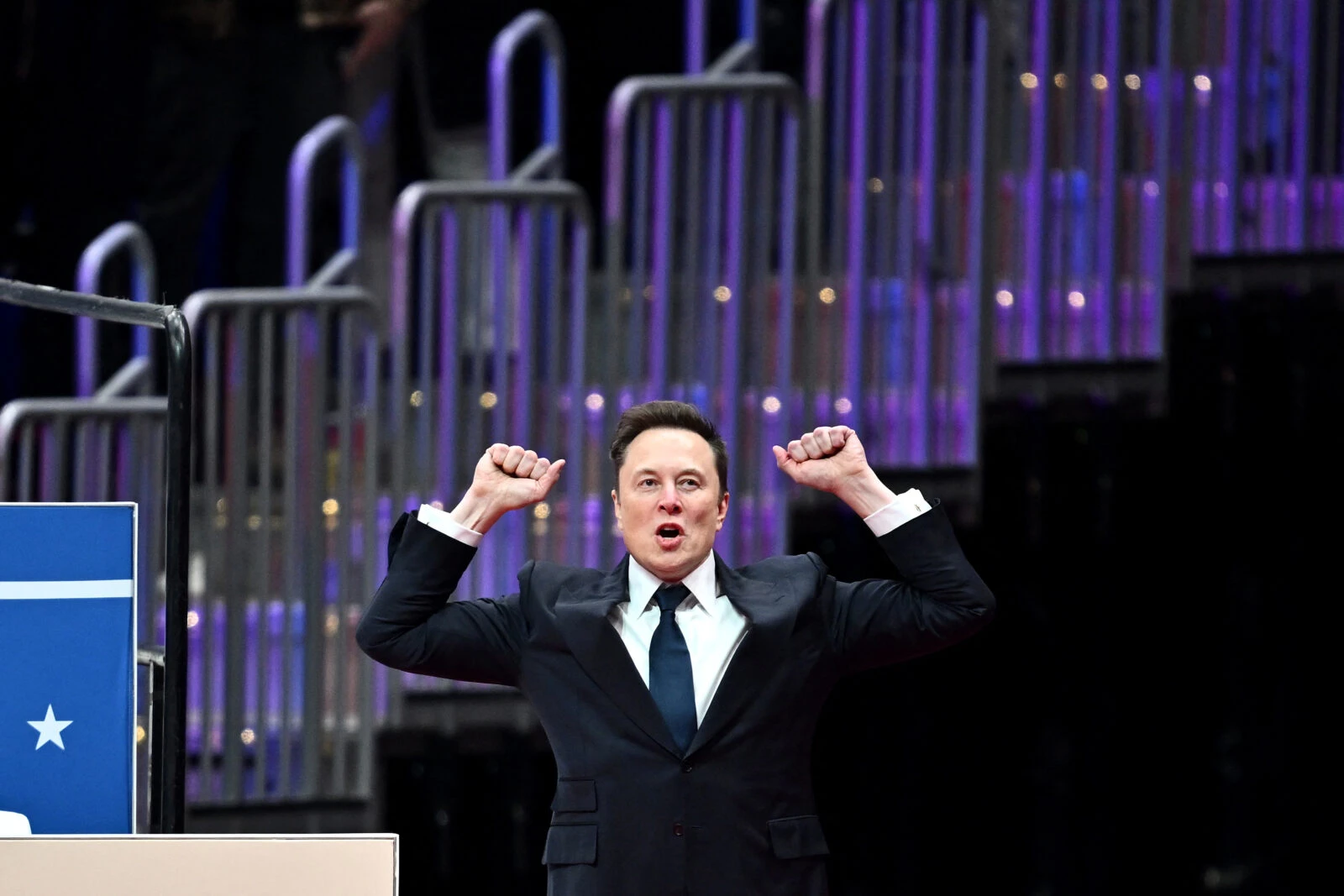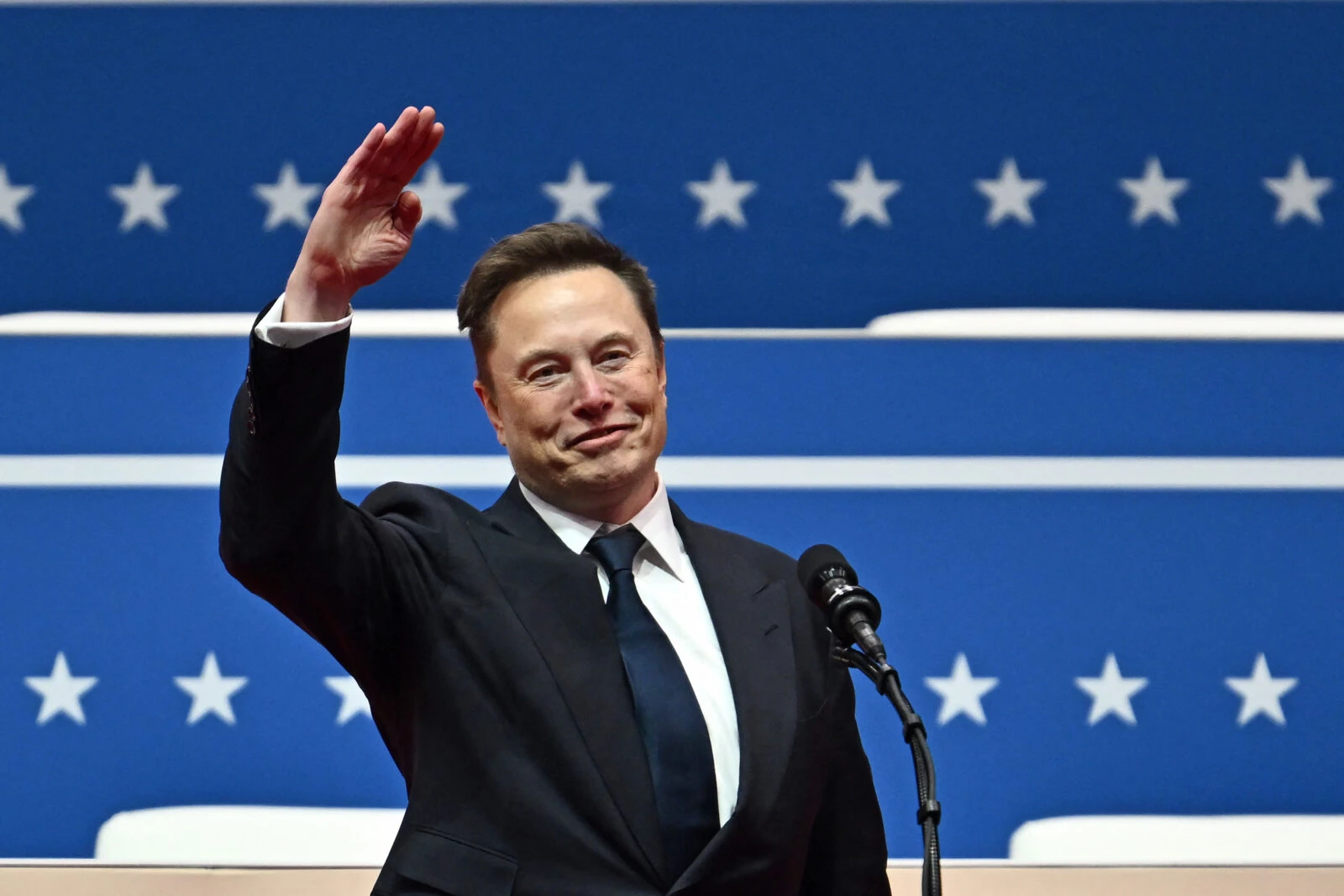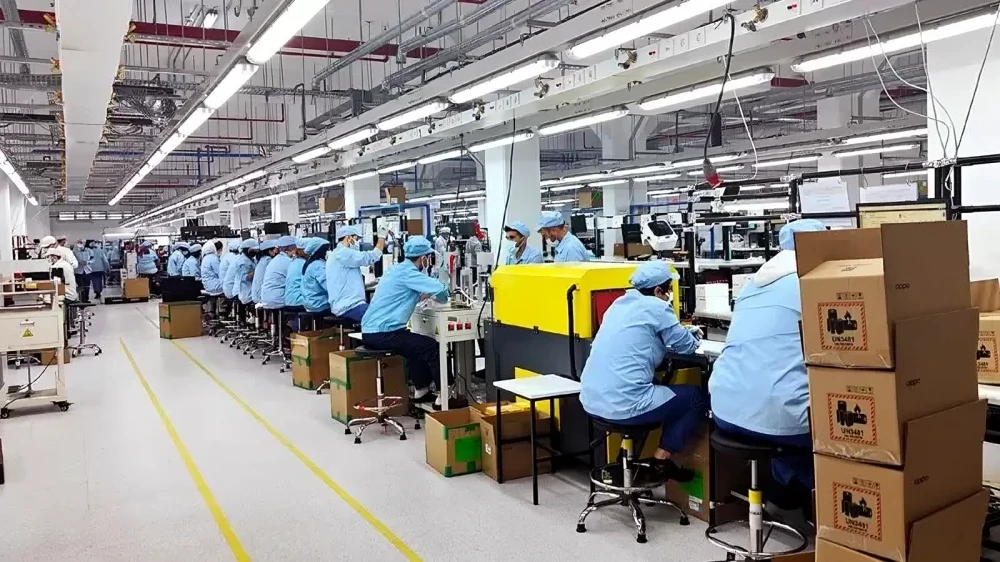Technological visionary’s challenge to US State apparatus: Musk
 Tesla and SpaceX CEO Elon Musk speaks at a rally for former US President and Republican presidential candidate Donald Trump at Madison Square Garden in New York, October 27, 2024. (Photo by ANGELA WEISS / AFP)
Tesla and SpaceX CEO Elon Musk speaks at a rally for former US President and Republican presidential candidate Donald Trump at Madison Square Garden in New York, October 27, 2024. (Photo by ANGELA WEISS / AFP)
Elon Musk’s contributions to technology and innovation are undeniable. Through Tesla, he has revolutionized the electric vehicle industry. With SpaceX, he has placed the United States at the forefront of the space age once again. Yet as Musk’s influence extends beyond the private sector and into the heart of U.S. government operations, a critical question emerges: Is Musk not only a growing liability for America’s democratic order but also a potential threat to Donald Trump’s own presidency?
Musk’s increasing control over critical sectors and his integration into sensitive government functions raise concerns about whether his unchecked power could ultimately disrupt the very systems that have enabled his rise. While Trump has granted Musk unprecedented access to government resources, it is worth asking if this decision could backfire in ways that harm both President Donald Trump’s political legacy and the stability of the U.S. government itself.
Opportunity or threat?
Musk’s reach into government systems and data is unprecedented for someone who doesn’t hold a public office. His team’s access to the U.S. Treasury’s payment systems, handling over $5 trillion annually and containing the sensitive financial information of millions of Americans, is an example of how far his influence extends. Critics argue that this kind of access, granted without traditional oversight, exposes weaknesses in the U.S. governmental structure. What happens, they ask, when private ambitions go unchecked in public institutions?
Treasury officials who initially resisted Musk’s demands were reportedly removed, paving the way for him to gain this access. But such developments raise a fundamental question: Who oversees Musk’s involvement, and who ensures that this power is wielded responsibly? These concerns are not limited to data privacy; they touch on the very fabric of how the government is meant to function. By allowing an individual with no electoral mandate or public accountability to integrate himself into the machinery of governance, Trump’s administration has created a precedent that could destabilize U.S. institutions.
The issue is not Musk’s technological contributions; they are extraordinary and deserve recognition. Instead, the problem lies in the concentration of power in the hands of one individual whose motives are primarily driven by private interests. Musk is a businessman first and foremost, and his decisions are not subject to the checks and balances that constrain public officials. This raises the possibility that Musk’s ambitions, no matter how innovative, could end up harming the very systems he claims to improve.

Trump’s gamble on Musk
For Trump, Musk’s rise has been a double-edged sword. On the surface, their partnership appears mutually beneficial. Musk’s achievements with SpaceX, including historic NASA collaborations, have provided Trump with tangible successes to showcase during his presidency. Similarly, Tesla’s contributions to the U.S. economy align with Trump’s narrative of job establishment and innovation.
But beneath this veneer of success lies a fragile and potentially dangerous dynamic. Musk’s independence and global ambitions frequently clash with the administration’s priorities. For example, Tesla’s reliance on the Chinese market for production and sales has forced Musk to maintain a cooperative relationship with Beijing; an approach that directly contradicts Trump’s hardline stance on China. This balancing act causes tension that could eventually disrupt their partnership.
Moreover, Musk’s growing autonomy presents challenges for Trump, a leader who values loyalty and control. Musk operates on his own terms, often sidelining institutional norms and stirring controversy in the process. His access to government systems, combined with his dominance in sectors like energy and space, risks overshadowing Trump’s authority. What happens if Musk, intentionally or not, becomes the face of American technological power rather than Trump? The question is no longer if Musk will outgrow Trump’s influence but when and what the consequences will be.
Should Musk’s actions lead to legal or political fallout, Trump’s decision to empower him may come under scrutiny. The federal judiciary has already intervened to limit Musk’s access to Treasury systems following allegations of improper data sharing. If antitrust cases or privacy scandals emerge, the blame could extend to Trump, whose administration allowed Musk’s unchecked rise in the first place. What seemed like a strategic alliance may ultimately expose Trump to risks he did not anticipate.

Threat to US State apparatus?
Beyond Trump’s presidency, Musk’s influence raises broader questions about the American system. His dominance in industries like electric vehicles, satellite communications, and space exploration has positioned him as one of the most powerful individuals in the world. But the power of this magnitude, when left unchecked, inevitably invites scrutiny. Musk is not only a symbol of innovation but also of the dangers of concentrated authority in the hands of one person.
Musk’s ventures increasingly resemble monopolistic structures, prompting speculation about whether the U.S. government might eventually pursue antitrust action against him. Tesla’s overwhelming market share in electric vehicles, SpaceX’s leadership in satellite launches, and Starlink’s growing control over global internet connectivity all point to a consolidation of power that may stifle competition. While Musk has yet to face a formal antitrust case, the question remains: At what point will his influence become too great to ignore?
The risks extend beyond competition. Musk’s role in government systems raises questions about accountability and oversight. Unlike elected officials, Musk is not subject to public scrutiny or democratic checks. His decisions, whether regarding technological innovation or government data, are driven by his own vision; a vision that may not align with the public good. This lack of accountability poses a threat not just to individual institutions but to the principles upon which the U.S. government is built.
Question of balance
Elon Musk’s story is one of innovation and ambition, but it is also a cautionary tale about the dangers of unchecked power. His contributions to technology and progress are monumental, but they do not exempt him from accountability. For President Donald Trump, Elon Musk represents both an ally and a potential liability and a figure whose influence could either bolster or undermine his presidency. For the U.S. government, Musk’s rise serves as a reminder that even the brightest innovators must operate within the boundaries of the governmental system.
As Musk continues to shape the future, the need for balance becomes increasingly urgent. Technology and innovation are vital, but they must be paired with oversight and accountability. Otherwise, the very systems designed to serve the public could become tools for private ambition, with consequences far beyond what any one person or administration can foresee.
About the author: Tolga Sunhiran is a freelance writer specializing in political and global issues.



